Resilience courses through the city of Chicago’s veins. It’s a lesson I’ve learned in my 25 years as a Chicagoan, as I’ve seen my city ravaged by the forces of gentrification and violence. Chicago is one of the most segregated cities in the United States, a heavy history continues to shape daily life for all of the metropolis’ residents. Images of gun violence overflow on social media. Illinois’ broken education system and Mayor Rahm Emanuel’s education plan continue to make headlines. Then-and-now photos show how gentrification has reshaped the landscape of neighborhoods from Lakeview to Bucktown to Pilsen.
Amid all of this, though, is resilience. We don’t often see the unbridled joy, the endless hope, or acts of resistance from Chicagoans, as tales of a city on the verge of breakdown continue to swirl in mainstream media.
We decided to speak to some of the city’s young Latinos, to reflect on the challenges they face in their communities, myths surrounding Latino experiences, and their hopes for the future of the city.
Interviews by Isabelia Herrera and Itzel Alejandra Martinez. Photos by Itzel Alejandra Martinez for Remezcla
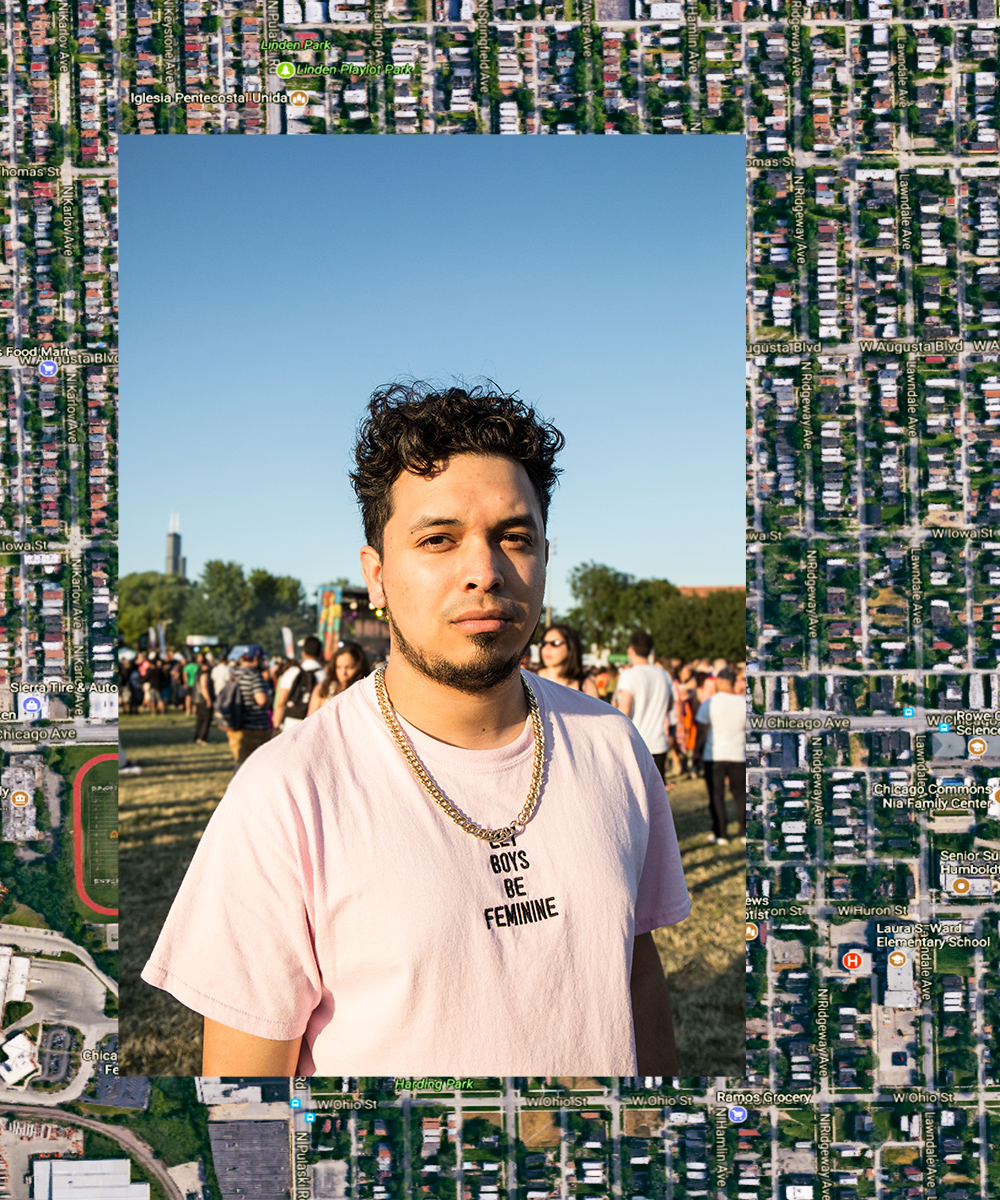
Rey Lester Irizarry
Age: 28
Neighborhood: Humboldt Park
Background: Puerto Rican
“Chicago is extremely segregated. I think the segregation and the gentrification is actually kind of violent. It’s very intentional. When you understand who’s really in power and who’s really in control, who the development companies are, where they actually put their money towards, who they fund campaigns for, who are in the aldermen’s pockets and things like that…You start to figure out, even in local government, how we’re not always winning.
But there’s resistance, there’s also space to flourish, there’s also space to create something new. I feel that things are coming out of it. I see a lot of youth throwing pop-up mics; I see youth throwing DIY shows now. And though there have been infiltration of gentrifiers in DIY spaces as well, I think a lot of us do a really good job of making sure those spaces remain safe havens for queer folk of color and people of color.
Poverty is real in Chicago, and I just want to see more equitable positions for people of color. I have so many friends going to school, graduating with degrees, and not getting jobs. I’ve seen so many artists struggling to do their craft, and their craft gets stolen or their murals get painted over because gentrification pushes them out. The hope I have for the city is a landscape that’s a bit more equitable for Chicago artists, Chicago workers, Chicago youth, to find spaces where they can actually be productive and create things to uplift their whole community.”
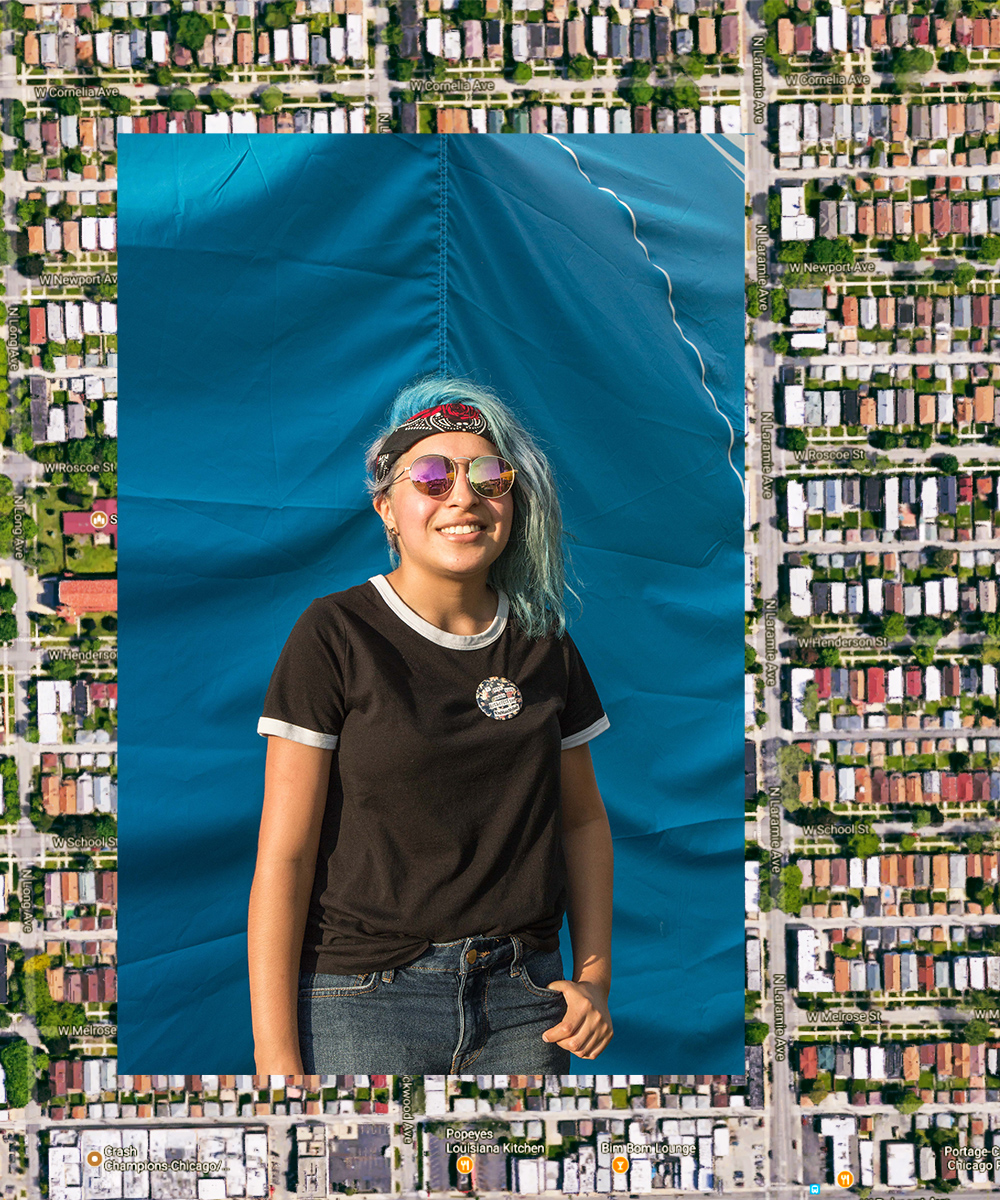
Aimee Rodriguez
Age: 18
Neighborhood: Portage-Cragin
Background: Mexican
“A lot of the elders or older people, they think that young Chicagoans are just in gangs, standing in corners, trying to start fights. But in reality, it’s nothing like that. I know a lot of young people that just want to make a difference in their neighborhood and really stand out.
My hope is that we finally pass a budget for the state, first of all, and we really need to start funding our CPS [Chicago Public Schools] schools because that’s a big issue. A lot of students are dropping out of these CPS schools because there’s no budget. I know my school didn’t even have a budget to have a library, and that’s one of the essential things a school should have.”
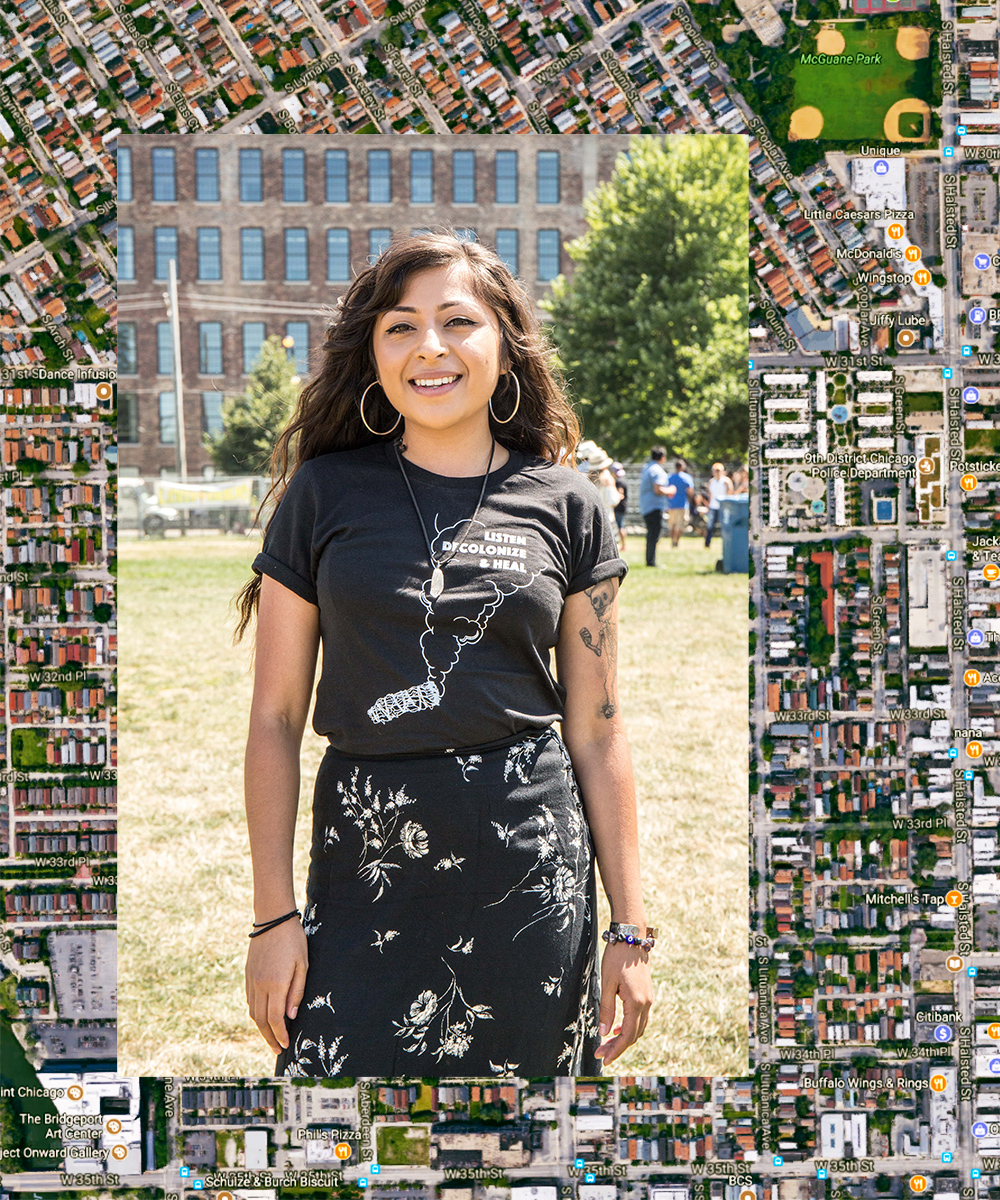
Ariel Aguilera
Age: 26
Neighborhood: Bridgeport
Background: Mexican
“I hope that as gentrification is coming into these different neighborhoods that one, the community gets together and stands their ground and preserves and protects their culture within the community, but then also those who are coming from other neighborhoods respect what is there and not take over. Work with the people, work with the natives, work with the locals, instead of going over and just creating a blanket as if nothing ever existed. Yes, we can create interchangeable cultures, but be respectful of where you stand and where you come from.”
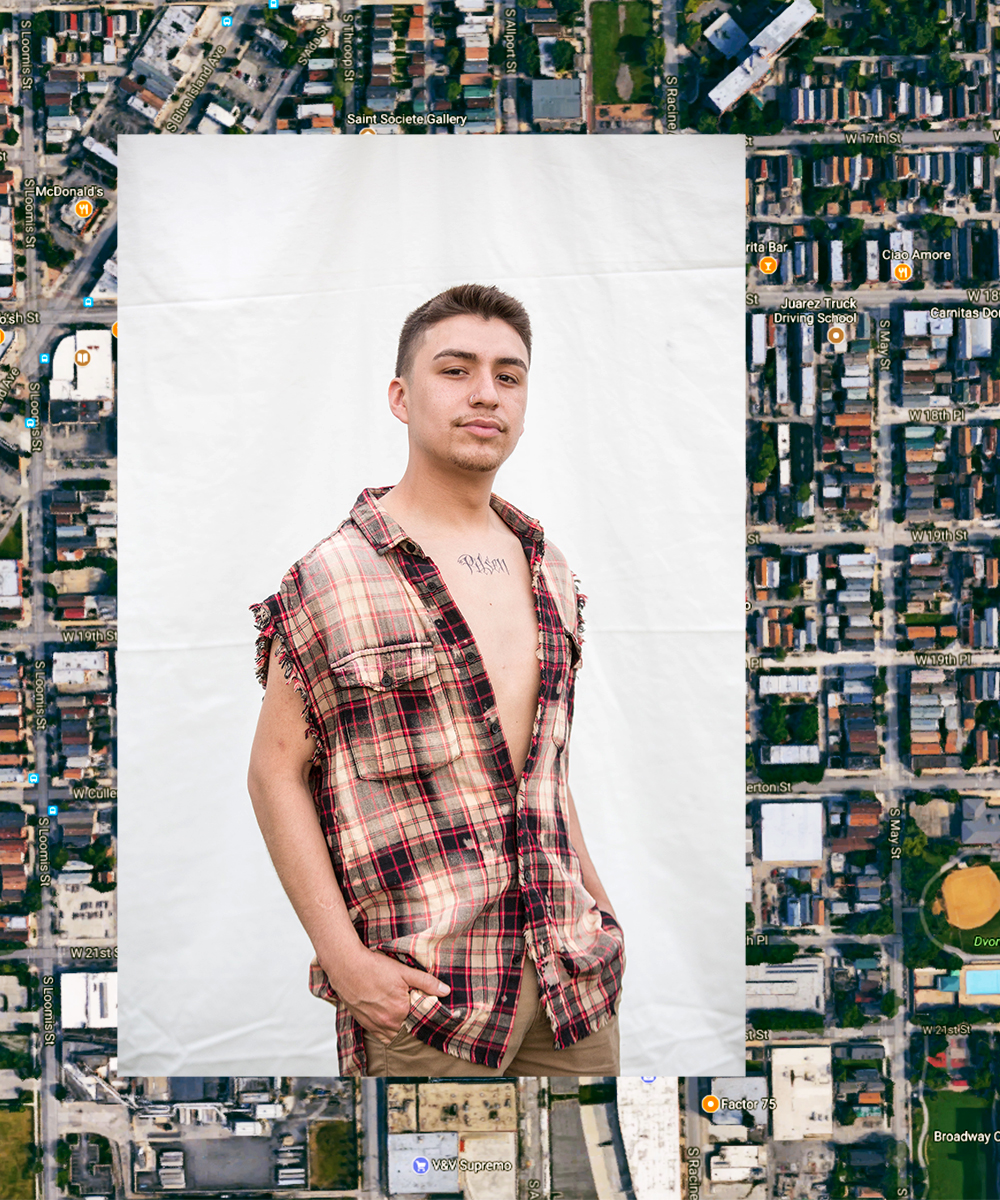
Felix Diaz
Age: 24
Neighborhood: Pilsen
Background: Mexican
“There’s a lot of gentrification in Pilsen. I always want to make a point that it’s not just Joe and Melissa getting an apartment. That’s not what it’s about. It’s about these companies that come and buy these buildings that create these multi-unit high-rise luxury apartments, when that’s not what Pilsen was based on. Pilsen was based on low-income families, and it’s just not that anymore. And it just sucks for the younger generation that we have to move out because we can’t afford to live here. I guess that’s the point that I want to stress with the segregation part — that’s where it comes into play, where it becomes violent. People who want to push for the movement; they don’t understand what we’re pushing for.”
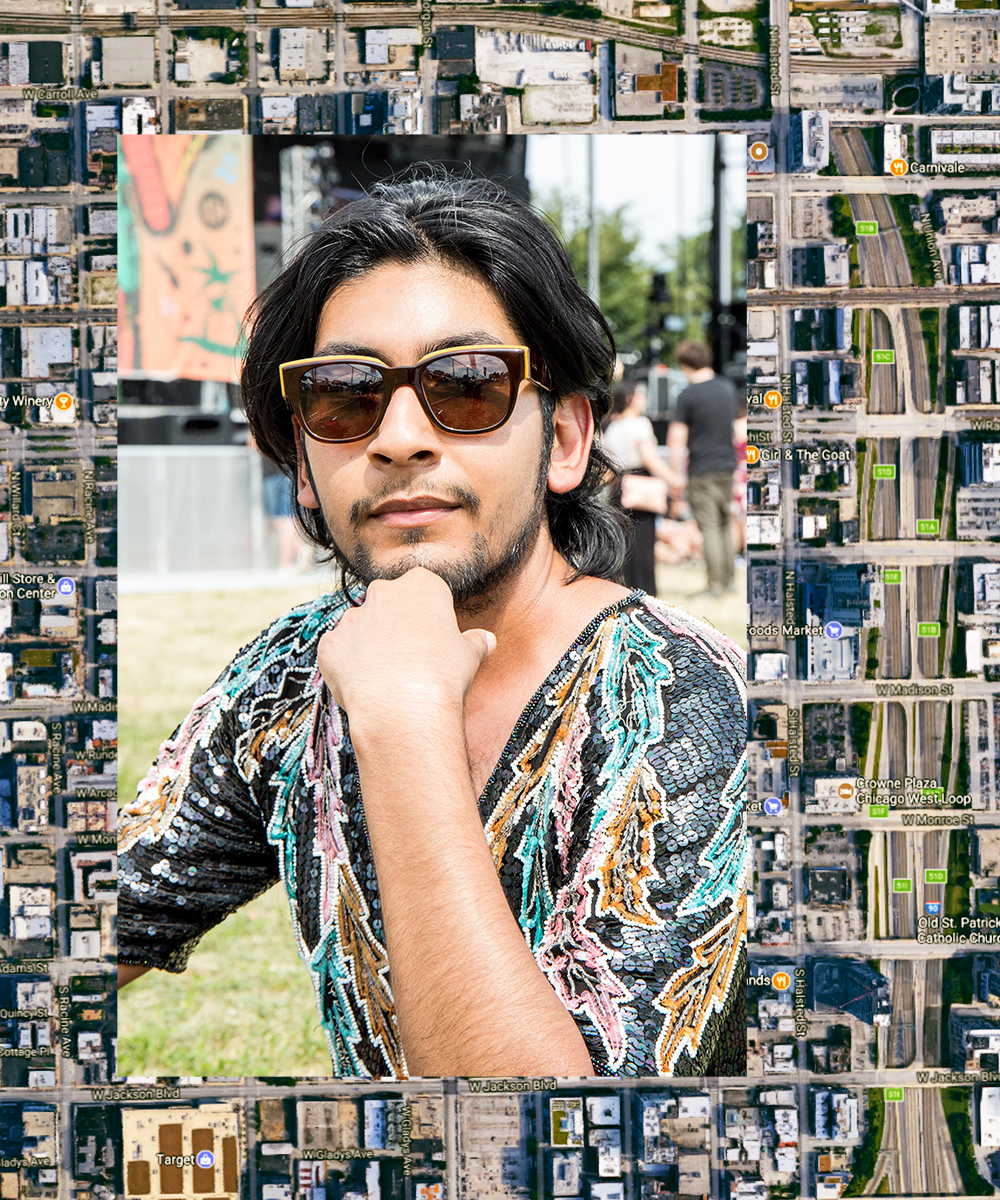
Brian Morales
Age: 24
Neighborhood: West Loop
Background: Mexican
“[I hope for] more of an integration of communities. We are so heavily segregated; you can be on one block and it’s Anglo-Saxon, and you turn the corner and it’s an entirely different neighborhood – you have poverty and different [people of color]. I think the more we integrate and do stuff like Ruido Fest that involves music and culture, the more that we can integrate those people together.”
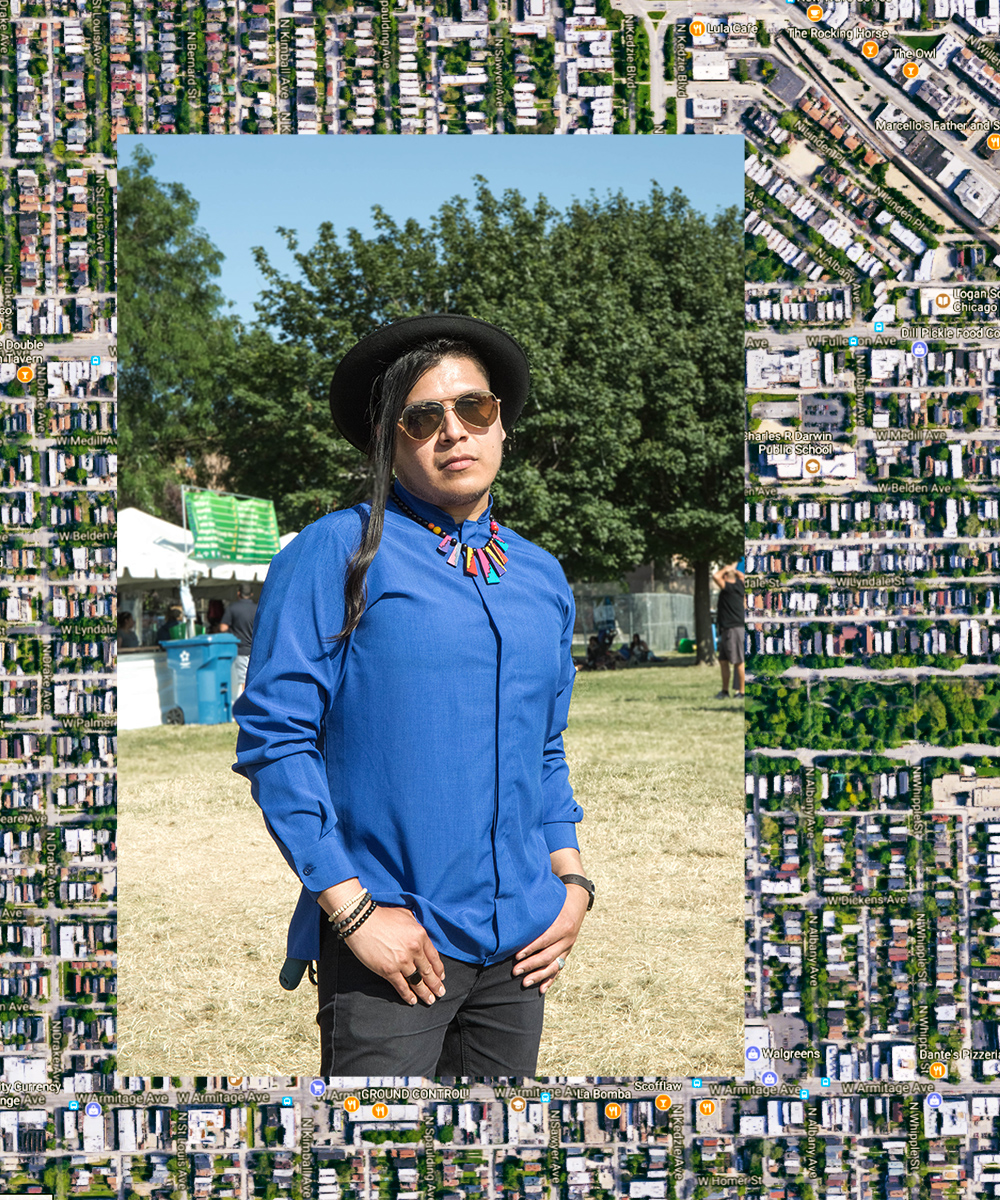
Geo Sotelo
Age: 32
Neighborhood: Logan Square
Background: Mexican
“In Chicago particularly, people focus so much on violence. We should say, ‘Yes, this is happening,’ but we should ask, ‘How can I make my neighborhood better? How do I help my people?’ We shouldn’t get swept up in that, because in the news, everything is always bad.
I’d like to see more Latinos together [in Chicago]. Less fighting, less segregation. The Latino community here is big, but I think in a certain way, we are segregated. Even us Latinos, we say ‘Puerto Ricans here, Mexicans here.’ We have to stay united, especially the way things are in the United States now with our president. Now more than ever it’s important to stay united.”
These interviews have been edited and condensed for clarity.







